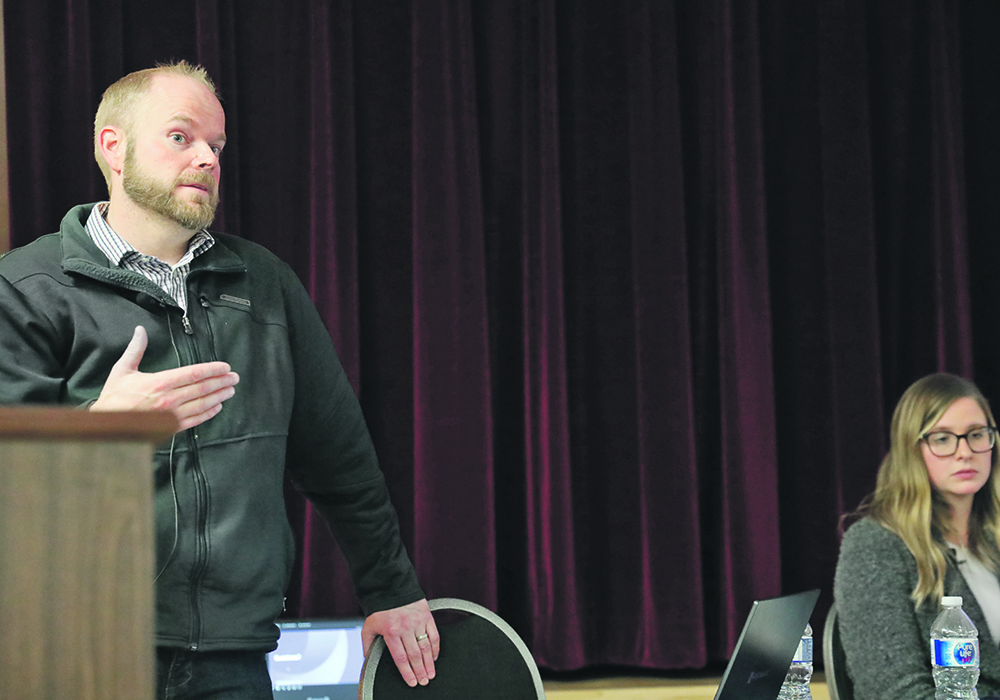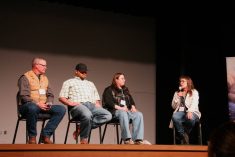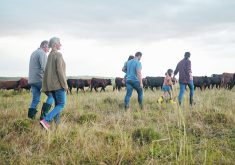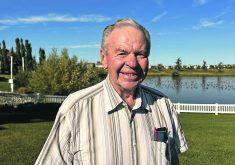Workshops are available that help producers figure out what they need to do first to successfully transition their farms
STROME, Alta. — Dozens of farm couples drove through a winter storm to the small community hall in the hamlet of Strome to listen to accountants talk taxes, capital gains, trusts, liability, asset pools, shareholder agreements and death.
Farm succession planning isn’t easy or exciting, but successful farm transitions take time, work and a bucket full of information.
Bob and Karen George of Killam, Alta., said they are just starting the transition process to have their son take over the farm.
“We are at the start of figuring it out,” said Bob, whose son is already working on the farm with the desire to take over and become the fourth-generation farmer.
“It is important to keep it in the family,” said Bob, who came to the meeting hosted by Flagstaff County to learn how to make the transition possible.
“I think you have to be prepared. Any information is going to help, either right now, or down the road,” said Karen.
The couple hopes to retire in five to 10 years and move to their Pelican Point retirement home and have their son move to the family farmhouse.
They are also exploring how to make the farm transition fair to the three non-farming children.
“They know that Tim is taking over the farm. They know that it won’t be 100 percent fair. It will work out. They all understand. They all know what the process is. They know what farming entails,” said Karen.
“I would consider ourselves very lucky to be able to pass it on because some people can’t, or their kids don’t want to farm.”
Scott Charles of Donalda, Alta., said anyone with a farm and non-farming kids needs to attend the workshops to get ideas on how a farm transition will work.
“It is a given that the farm will pass on and it is already multiple generations. When that happens who knows. It is more a problem of being fair to non-farming family. It’s a bigger problem since land values went up,” said Charles.
Trying to limit the amount of taxes that needs to be paid is one of the biggest reasons Charles turned out to hear the specialized tax experts.
Howard and Allison Ness of Lougheed, Alta., said they are interested in succession planning and admit they know little about how the transfer would work for their three children. Their two sons are interested in the farm and work off the farm. Their daughter is not interested in taking over the farm.
“We need help. We have to figure out how to make it work,” said Allison.
While the couple has no timelines or clear directions for the succession plan, they do know they want a better plan than what they inherited.
“We haven’t had a good succession plan above us. We don’t want that at all,” said Bob.
“When it comes time to make a transition we want everything looked after so it is smooth and easy and everything is taken care of, they’re taken care of and we’re taken care of. Hopefully we can get a little insight in how to do that,” said Bob.
Robert Lockhart and his daughter-in-law, Shannon Lockhart, of Strome came to see how they can plan their future and the farm’s future.
Two of Lockhart’s sons died, one of them Shannon’s husband. Robert’s daughter and Shannon’s nephew are the remaining beneficiaries.
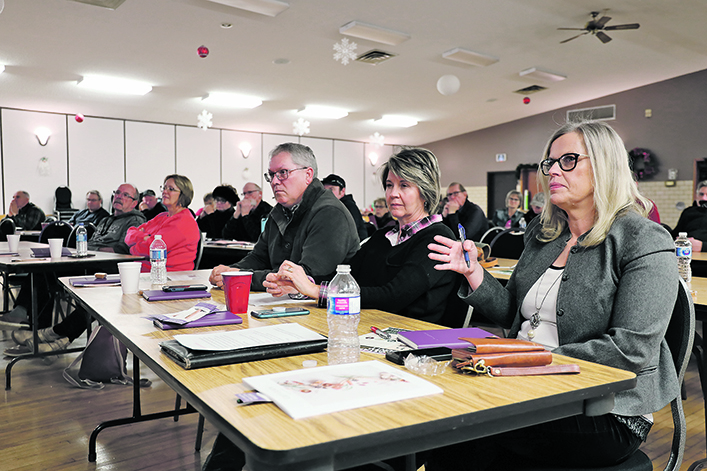
“Between the two of us we need to figure out a succession plan. What do we do?” said Shannon.
For Robert, attending the session is “just a point of interest.” He also wants to find the best way to pass on the farm and limit the amount of tax paid.
“We need to learn how to unload it without giving it all to the government. A lot of the land I bought for $100 an acre or less and now it is a million dollars a quarter. The taxation is real. When you have to pay tax on a million dollars, how do you do it?”
Questions from the farmers are not unusual, said Cassidy Bogstie, a senior tax analyst with Grant Thornton. Bogstie and Michael Wetsch, a senior manager, led the information sessions.
“Nobody wants to pay tax. Most farms want them to go to a second or third generation so they are doing whatever they can to know what the planning is around succession,” said Bogstie, who works out of the Camrose, Alta., office and said 70 percent of her time is spent on farm estate planning.
Tax planning is year-round, but a more formal discussion is held once a year at the farm’s year end, she said.
“We have this discussion every year so they have this in the back of their head, so when they are ready they come in and sit down with the partner on the file and a tax specialist and the tax specialist will make out a plan or a couple options. We try to keep it really relevant, especially for farms. There are so many things that can come up. Most people with a farm, they know they need to do something.”

